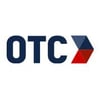
OTC Insights Team
Established in 1963, OTC Industrial Technologies (Ohio Transmission Corporation) is one of the largest industrial distributors & service providers in the United States. We're committed to seeing industrial operations advance through expert technical solutions & unmatched support using our years of experience.
In recent years, the automotive industry has faced unprecedented world events, new technologies, and even shifts in manufacturing and production.
The real-world factors impacting markets have had an outsized, and sometimes discordant, impact on the auto industry. Factors such as supply chain shortages, the pandemic, inflation, high interest rates, and low inventory levels have caused demand and sales of vehicles to fluctuate. While sales of new vehicles plummeted in 2020 due to the pandemic, 2021 and 2022 saw demand for new cars increase, but the material supply chain, specifically semiconductors, couldn’t match demand, causing an 8.2% decrease in sales.
This year has seen continued strong demand for cars, while the supply chain has slowly begun to stabilize as new suppliers enter the market.
Future Trends in the Automobile Industry
With these changes, many industry leaders speculate on what the future holds for automobile manufacturing. Identifying early factors that will have an impact on auto sales and production will provide a competitive advantage.
Let’s look at the trends we see in the industry.
Shared Mobility
Shared mobility refers to transportation services and resources shared among users simultaneously or in succession. These include carpooling, ridesharing, peer-to-peer car sharing, e-hailing services such as Uber and Lyft, and shared electric scooters.
Advances in electronic and wireless technologies have made sharing assets and data faster and more convenient than ever. This has allowed car rental companies, private businesses, and automobile manufacturers to combine fare media with real-time arrival and departure information.
For manufacturers in the automotive sector, this trend is both an opportunity and a risk. As more consumers turn to shared mobility rather than private vehicles, the demand for personal-use cars decreases, leading to less demand for new vehicles. However, this is a potential new market for vehicles that lean into electronic and wireless technology, as well as the convenience of shared mobility vehicles. It is a trend to watch and prepare for in the automotive industry.
Autonomous Driving
Self-driving vehicles, or transport systems that move without humans behind the wheel, are starting to find mainstream acceptance. Currently, there are a range of automated assistance features for drivers, with more being introduced as the industry can safely adopt them. Despite potential dangers, this is a trend that is seeing widespread acceptance by both drivers and the industry.
Autonomous driving is made possible by utilizing sophisticated telematics and other connectivity protocols. VTX technologies enable vehicles to communicate with each other and other connected elements such as smart traffic lights, railroad crossings, etc. Industry leaders need to start exploring the technology internally or finding a partner to help with adopting and implementing it. The company that can both safely roll out autonomous driving technology and market it to the public in a way that will spur widespread adoption will see significant market advantages.
Electrification
Electrification is when fossil fuel sources such as coal, oil, and gas are substituted with energy sources like solar, wind, hydro, and geothermal. In the automotive industry, electrification is the driving factor in both hybrid and electric vehicles.
It is also behind many of the latest technologies being adopted in the automotive industry. Many of the old vehicle components, like the gas and diesel engine, have little to no use in an electric or hybrid vehicle. New products, like hybrid engines and electric car batteries, use specialized technology that requires production methods not possible in older factories.
This has opened the auto industry up to new players, from companies that supply the batteries and components used in electric and hybrid vehicles, to a wave of new car manufacturers. Auto manufacturers need to recognize that this is a fast-moving trend. They need to find a place in the new market. This could be by developing new technology or partnering with a company that is working in the field. By staking a claim through electrification, companies can find a place in the new market paradigm.
Automation and Robotics
The auto industry has always been a leader in manufacturing automation and robotics. From the first industrial robots used by General Motors in 1961 to the connected systems of the Industrial Internet of Things (IIoT), manufacturers, especially auto manufacturers, have always looked to technology as an opportunity to increase efficiency and reduce costs.
Today, that trend is only accelerating as technology has become more widely available, adoption is more possible, and outside factors continue to push manufacturers to lean on automation. The recent difficulties in finding labor and workforce resources have forced manufacturers to use robotics and automation more quickly than many companies might be comfortable.
In the end, this trend will have a net positive impact on manufacturing, but it won’t be without potential growing pains and investment. The companies, especially automotive OEMs, that partner with leaders in automation and invest wisely in robotics and automation, will be positioned to gain the most from this change. The companies that continue to fight against change will struggle as the automotive industry changes.
OTC, Your Automotive Solutions Partner
The automotive industry currently finds itself at a crossroads.
The crash in sales that occurred during the pandemic has been replaced by increased demand. It’s a demand that the industry is struggling to fill due to supply chain problems and labor shortages. These competing forces represent both opportunities and risks for companies.
There’s never been a better time to look to the future.
Get unmatched expertise and products you can trust with OTC Industrial Technologies' comprehensive industrial and manufacturing solutions and products. We work with a network of industry-leading thought leaders and vendors and are dedicated to customizing the right solutions for our partners in every industry.
With OTC, we can offer the following:
- End-to-end automation solutions – Whether it’s the latest PLCs or customized data collection tools, OTC offers solution-focused automation products.
- On-demand expertise – If you need support for a major project, repair services for critical equipment, or fabrication services customized to your needs, OTC can help. By partnering with OTC, you'll work with industry leaders with critical expertise in a range of areas – the on-demand expertise you need.
- Preventative and no-touch maintenance – Spot problems before they happen and keep your equipment running at peak performance. With OTC’s preventative maintenance, you will reduce surprise breakdowns and extend the lifespan of your automated equipment. We accelerate work orders with our seamless request process. Our maintenance programs help you anticipate and proactively avoid surprise malfunctions.
- Finishing solutions – We offer end-to-end finishing solutions with compressed air, equipment, design, and robotics. Our technology can improve the quality of your finishing and consistency, and decrease material waste while lowering operating costs.
Don’t wait to prepare your business for future success. Contact OTC Industrial Technologies to discuss your needs.
Stay up to date
SUBSCRIBE TO OUR BLOGPosts by Tag
- General Manufacturing (102)
- Compressed Air Solutions (61)
- Automotive (35)
- Finishing and Dispensing (33)
- Rotating Equipment (31)
- Maintenance & Repair Services (22)
- Industrial Automation (21)
- Case Studies (19)
- Electronics & Semiconductor (16)
- Sustainable Manufacturing (12)
- Energy Efficiency (10)
- Filtration (9)
- Energy, Power & Utilities (8)
- Oil & Gas (6)
- Food & Beverage (5)
- Biotech & Pharmaceutical (4)
- Chemical & Petrochemical (3)
- Industrial OEMs (3)
- Steel & Metal Manufacturing (3)
- Aerospace (2)
- Agriculture (2)
- Packaging & Processing (1)
- Pulp & Paper (1)


